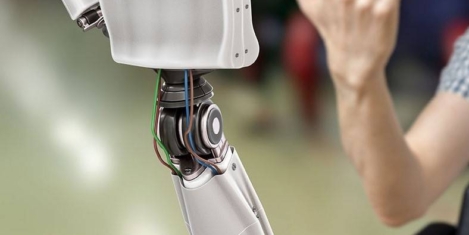To provide the best experiences, we use technologies like cookies to store and/or access device information. Consenting to these technologies will allow us to process data such as browsing behaviour or unique IDs on this site. Not consenting or withdrawing consent, may adversely affect certain features and functions.
The technical storage or access is strictly necessary for the legitimate purpose of enabling the use of a specific service explicitly requested by the subscriber or user, or for the sole purpose of carrying out the transmission of a communication over an electronic communications network.
The technical storage or access is necessary for the legitimate purpose of storing preferences that are not requested by the subscriber or user.
The technical storage or access that is used exclusively for statistical purposes.
The technical storage or access that is used exclusively for anonymous statistical purposes. Without a subpoena, voluntary compliance on the part of your Internet Service Provider, or additional records from a third party, information stored or retrieved for this purpose alone cannot usually be used to identify you.
The technical storage or access is required to create user profiles to send advertising, or to track the user on a website or across several websites for similar marketing purposes.
 A new report from the British Safety Council and consultancy Robertson Cooper, explores what it claims is the probable impact of new working practices and technology on people’s physical and mental wellbeing, and what employers, unions and legislators should do to address them. The report, Future risk: Impact of Work on Health, Safety and Wellbeing, argues that the safety, health and wellbeing of older workers will become more important and new risks will arise related to the adoption of artificial intelligence and automation.
A new report from the British Safety Council and consultancy Robertson Cooper, explores what it claims is the probable impact of new working practices and technology on people’s physical and mental wellbeing, and what employers, unions and legislators should do to address them. The report, Future risk: Impact of Work on Health, Safety and Wellbeing, argues that the safety, health and wellbeing of older workers will become more important and new risks will arise related to the adoption of artificial intelligence and automation.






 Google has been named the Ideal Employer among tech professionals in the 2018 Dice UK Ideal Employer Report. While market leaders including Microsoft, Apple, Amazon, Facebook and IBM are placed highly, the report suggests that smaller tech brands can also attract the top talent through benefits including yoga, in-house cafeterias and more. For many technology professionals, Google is the gold standard employer, with a perfect mix of competitive salary, perks, benefits and interesting work, something smaller companies can learn from. The survey of 464 tech professionals found that simple office upgrades including yoga, colourful furniture and other positive innovative cultural perks can help smaller companies attract the best talent, even if smaller in size. Good work/life balances, open communications and manageable working hours also ranked highly.
Google has been named the Ideal Employer among tech professionals in the 2018 Dice UK Ideal Employer Report. While market leaders including Microsoft, Apple, Amazon, Facebook and IBM are placed highly, the report suggests that smaller tech brands can also attract the top talent through benefits including yoga, in-house cafeterias and more. For many technology professionals, Google is the gold standard employer, with a perfect mix of competitive salary, perks, benefits and interesting work, something smaller companies can learn from. The survey of 464 tech professionals found that simple office upgrades including yoga, colourful furniture and other positive innovative cultural perks can help smaller companies attract the best talent, even if smaller in size. Good work/life balances, open communications and manageable working hours also ranked highly. 








 Employers’ efforts in the US to improve staff health and wellbeing are falling short of employees’ expectations, claims a new report. Nearly two-thirds of employees (65 percent) in a report from Willis Towers Watson agree that managing their health is a top priority, but while the majority of employers (56 percent) believe their wellbeing programmes have encouraged employees to live a healthier lifestyle, only 32 percent of employees agree. Eighty-seven percent of employers who participated in the 22nd annual Best Practices in Health Care Employer Survey say increasing employee engagement in health and well-being is a top priority and the research warns that employees in poor health are twice as likely to be disengaged at work and take almost three times as many days off as employees who are in very good health. Employers can improve health behaviour through designing the workplace environment to make it easier for employees to stay fit, eat well, breathe fresh air and address stress adds the report.
Employers’ efforts in the US to improve staff health and wellbeing are falling short of employees’ expectations, claims a new report. Nearly two-thirds of employees (65 percent) in a report from Willis Towers Watson agree that managing their health is a top priority, but while the majority of employers (56 percent) believe their wellbeing programmes have encouraged employees to live a healthier lifestyle, only 32 percent of employees agree. Eighty-seven percent of employers who participated in the 22nd annual Best Practices in Health Care Employer Survey say increasing employee engagement in health and well-being is a top priority and the research warns that employees in poor health are twice as likely to be disengaged at work and take almost three times as many days off as employees who are in very good health. Employers can improve health behaviour through designing the workplace environment to make it easier for employees to stay fit, eat well, breathe fresh air and address stress adds the report.
 City centre take up reached 1,005,000 sq ft in Birmingham last year, 51 percent above the 10-year average of 666,000 sq ft which marked a record year, according to Savills Research. Growth was driven in part by the Government Property Unit (GPU) deal, as public services accounted for 27 percent of take-up in the city centre last year, including the 237,000 sq ft pre-let at Arena Central. Birmingham’s boom was also boasted by take-up from serviced office providers that reached 208,000 sq ft during 2017, the highest level on record and this accounted for 21 percent of the total take-up, more than any other regional city. There now remains a shortage of Prime Grade A space in Birmingham city centre following a number of large lettings. Prime Grade A space now stands at only 169,000 sq ft, enough for only six months of take-up at average levels. Major construction project, Three Snowhill won’t complete until the second quarter of next year, when it will deliver 420,000 sq ft of much needed Grade A office space on its completion. Until then, competition among occupiers will further intensify for Grade A space.
City centre take up reached 1,005,000 sq ft in Birmingham last year, 51 percent above the 10-year average of 666,000 sq ft which marked a record year, according to Savills Research. Growth was driven in part by the Government Property Unit (GPU) deal, as public services accounted for 27 percent of take-up in the city centre last year, including the 237,000 sq ft pre-let at Arena Central. Birmingham’s boom was also boasted by take-up from serviced office providers that reached 208,000 sq ft during 2017, the highest level on record and this accounted for 21 percent of the total take-up, more than any other regional city. There now remains a shortage of Prime Grade A space in Birmingham city centre following a number of large lettings. Prime Grade A space now stands at only 169,000 sq ft, enough for only six months of take-up at average levels. Major construction project, Three Snowhill won’t complete until the second quarter of next year, when it will deliver 420,000 sq ft of much needed Grade A office space on its completion. Until then, competition among occupiers will further intensify for Grade A space.


 Corporate real estate departments need to become more effective partners in the agile transformation of their broader organizations., claims a new survey conducted by CBRE, in partnership with CoreNet Global. When describing Portfolio Agility, i.e. the ability to rapidly adapt, scale and reposition the organization’s real estate portfolio to support shifting enterprise needs, 67 percent consider portfolio agility as the most important type of agility for business success, yet only 14 percent consider themselves highly agile in this area. The most prevalent portfolio agility practices included negotiating flexible space options in the lease, seeking shorter and/or more flexible lease terms, supporting an enterprise-wide flex-work program and delivering free address work environments. The report states that new workplace guidelines for efficiency have altered the way companies plan for density and more occupiers are incorporating third-party ‘agile space’ into their overall real estate strategy.
Corporate real estate departments need to become more effective partners in the agile transformation of their broader organizations., claims a new survey conducted by CBRE, in partnership with CoreNet Global. When describing Portfolio Agility, i.e. the ability to rapidly adapt, scale and reposition the organization’s real estate portfolio to support shifting enterprise needs, 67 percent consider portfolio agility as the most important type of agility for business success, yet only 14 percent consider themselves highly agile in this area. The most prevalent portfolio agility practices included negotiating flexible space options in the lease, seeking shorter and/or more flexible lease terms, supporting an enterprise-wide flex-work program and delivering free address work environments. The report states that new workplace guidelines for efficiency have altered the way companies plan for density and more occupiers are incorporating third-party ‘agile space’ into their overall real estate strategy.
 In a workplace dominated by insecurity, gig work and intelligent machines we need to improve our understanding of their potential impact on health, safety and wellbeing claims a new report.
In a workplace dominated by insecurity, gig work and intelligent machines we need to improve our understanding of their potential impact on health, safety and wellbeing claims a new report. 








March 6, 2018
How to reboot an activity based working project that has ground to a halt
by Karin Stahl • Comment, Flexible working, Technology, Workplace design